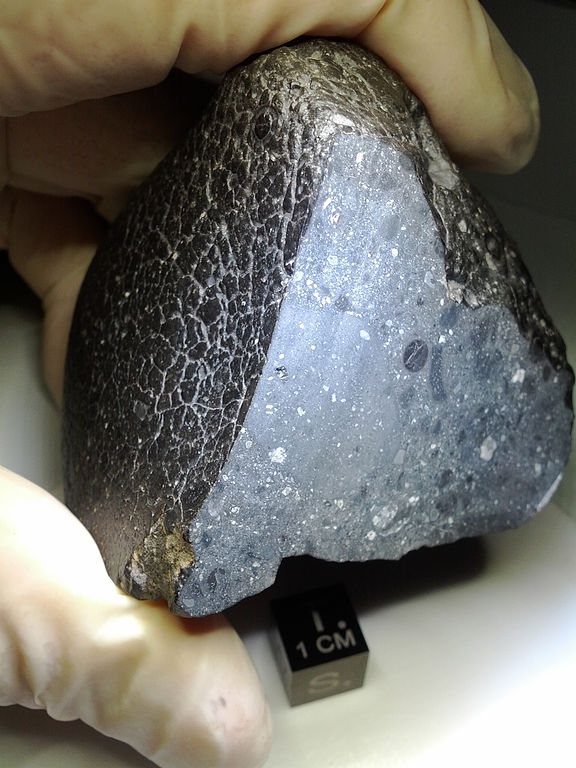On January 3, 2013, U.S. space agency NASA reported that a meteorite named NWA 7034 (nicknamed “Black Beauty“) was found in Morocco’s Sahara Desert in 2011. After long research, NASA scientists believe that this meteorite may yield secrets about Mars.
Black Beauty meteorite, found in 2011 in Sahara Desert, is different from other Martian meteorites found on Earth. Around 110 Martian meteorites have been found on Earth. It is assumed that most were probably blown off the Red Planet during a large asteroid impact and subsequently crashed on our own world. The Black Beauty meteorite was donated to the University of New Mexico by an American who bought it from a Moroccan meteorite dealer. After measuring the fist-sized coal-colored meteorite, scientists found it weighs 320g only.
After more than a year of study, a team of U.S. scientists determined that the Black Beauty meteorite had formed 2.1 billion years ago during the Amazonian geologic period on Mars. Scientists found, Black Beauty comprises fragments of basalt, a rock that forms from rapidly cooled lava. Besides, they analysed the rock through several methods. When the meteorite was heated to high temperature, hydrated minerals inside it released their water. The Black Beauty meteorite released 10 times more water than any SNC meteorite (short from of from three larger Martian meteorites: Shergotty, Nakhla, and Chassigny that are found on Earth), and gave off different isotopes of oxygen, which appeared in a ratio unlike any other Martian rock.
NASA scientists are quiet sure that the Black Beauty meteorite is from the red planet Mars’ surface and not from another planet or any asteroid belt, because its chemistry matches surface rocks which NASA had studied remotely via Mars rovers and orbiting satellites. NASA scientists believe, if more information from Black Beauty meteorite is revealed, then they’ll be able to dig out more information about Mars.
Lead scientist Carl Agee, said, “Many scientists think that Mars was warm and wet in its early history but the planet’s climate changed over time. This Martian meteorite (NWA 7034) has everything in its composition that you’d want in order to further our understanding of the Red Planet.” His study has been published in Science Express magazine.
Source: Wired.com
Thanks To:SkyNews
[ttjad keyword=”security”]




